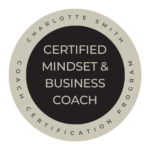


Agribusiness Leadership provides the necessary tools to unveil the fundamental principles of
Empowered Leaders that Trust themselves and the relationships they lead and leaders who are curious to discover who they are and who they lead.

Our emotions take us for a ride and the result is sometimes what we don’t like. There is another way. In this weeks blog I have a guest along to have some conversation around the what if question. Join me below to explore.
The What If Question: Embracing Possibilities
The “what if” question is a powerful tool that can open up new perspectives and possibilities. It encourages us to think beyond our current circumstances and explore different outcomes. Let’s delve into two key points that highlight the significance of asking “what if.”
Often, we find ourselves striving for perfection and fearing failure. But what if we allowed ourselves to be OK with imperfection? Asking “what if that’s OK” can be liberating. It helps us accept that not everything needs to be perfect and that it’s alright to make mistakes. This mindset shift can reduce stress and anxiety, allowing us to focus on growth and learning. Embracing the idea that it’s OK to be imperfect can lead to greater self-compassion and resilience.
As Brené Brown, a renowned researcher and author, once said, “Imperfections are not inadequacies; they are reminders that we’re all in this together.”
When faced with challenges, we often get stuck in a single way of thinking. Asking “what if there is another way” encourages us to explore alternative solutions. It opens the door to creativity and innovation. For example, if you’re struggling with a problem at work, considering different approaches can lead to unexpected breakthroughs. This question reminds us that there are multiple paths to success and that flexibility and adaptability are key to overcoming obstacles.
Albert Einstein famously said, “We cannot solve our problems with the same thinking we used when we created them.” This quote perfectly encapsulates the essence of exploring new ways of thinking.
Conclusion: The Power of “What If”
In conclusion, the “what if” question is a powerful tool that can transform our thinking and open up new possibilities. By asking “what if that’s OK,” we learn to embrace imperfection and foster self-compassion. This mindset allows us to grow and learn without the burden of perfectionism. Similarly, by asking “what if there is another way,” we encourage creativity and innovation, finding new solutions to challenges we face.
Leaders throughout history have harnessed the power of “what if” to drive change and inspire others. For example, Martin Luther King Jr. asked, “What if we could live in a world where people are judged by the content of their character rather than the color of their skin?” This visionary thinking led to significant progress in the civil rights movement. Similarly, Steve Jobs asked, “What if we could put the power of a computer in everyone’s hands?” This question revolutionized the technology industry and changed the way we live and work.
By embracing the “what if” mindset, we can unlock our potential and create a better future. So, the next time you find yourself facing a challenge or uncertainty, remember to ask, “what if?” and explore the possibilities that lie ahead.
Burned Out & Blaming Your Team?
This FREE 5-minute video explains what’s really going on—and what to do instead.